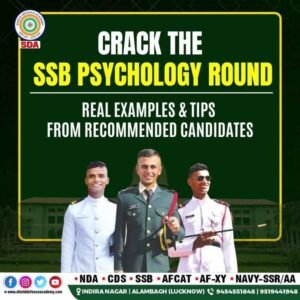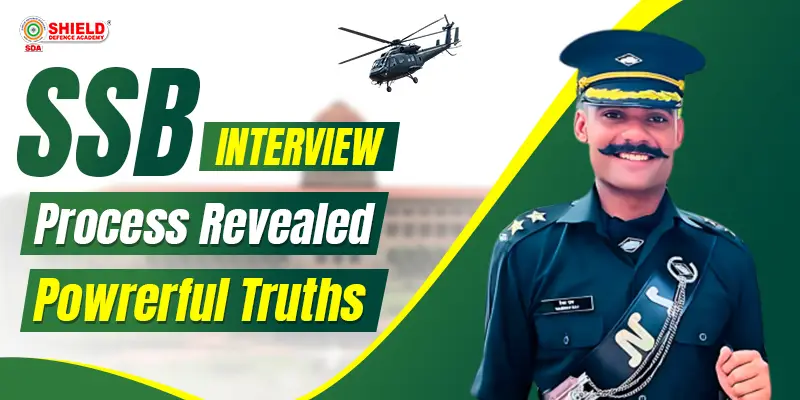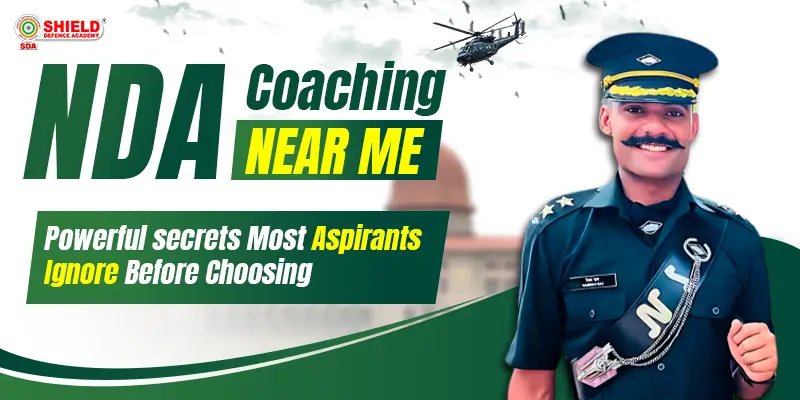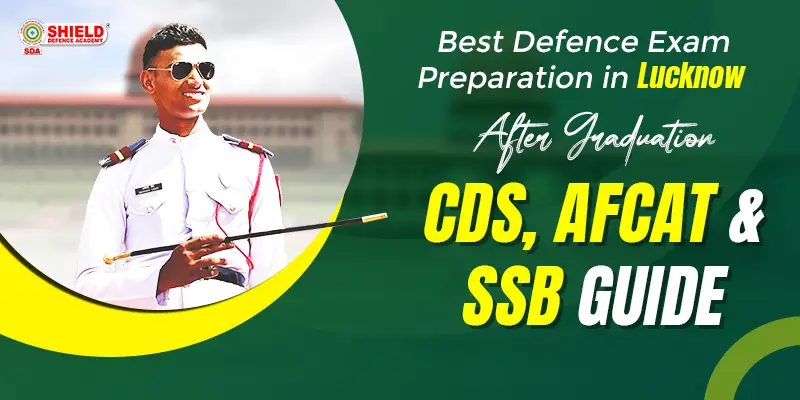Crack the SSB Psychology Round Real Examples & Tips from Recommended Candidates | Guide by Shield Defence Academy
The SSB interview is one of the most challenging stages in the journey to join the Indian Armed Forces, and the psychology round is often the trickiest part. This phase isn’t about how smart you appear on the outside—it’s about who you are on the inside. With the right mindset and strategic preparation, you can Crack the SSB Psychology Round and stand out. That’s exactly what Shield Defence Academy specializes in—equipping you with the mental clarity, confidence, and tools needed to ace this critical step.
Understanding the SSB Psychology Round
What is the Psychology Round All About?
This segment of the SSB is built to assess your personality at the subconscious level. Unlike personal interviews, here you’re not being judged on how well you speak or dress. Instead, it’s all about your natural thinking patterns, reactions, and emotional intelligence.
Why It Matters
The armed forces want real leaders—people who can stay calm under pressure, make ethical choices, and influence others positively. The psychology round helps assess whether your inner traits align with the qualities expected from future officers.

Breakdown of the SSB Psychology Tests
1. Thematic Apperception Test (TAT)
-
How It Works: You’re shown 12 images (including one blank) and asked to write a story for each.
-
Example Story:
-
Image Shown: A young boy with a backpack near a river.
-
Story: “Rohan, a nature lover, notices the river is polluted. He involves local authorities and the community in a cleanup drive, promoting environmental awareness in his village.”
-
Takeaway: This kind of story shows leadership, initiative, and social responsibility—all strong traits.
-
2. Word Association Test (WAT)
-
How It Works: You’re given 60 words, each for 15 seconds, and must quickly frame a sentence using each word.
-
Sample Responses:
-
Word: Brave → “Brave people inspire others during crises.”
-
Word: Failure → “Failure pushes one to try again with more effort.”
-
Tip: Always frame responses positively and avoid using negative conjunctions like “not.”
-
3. Situation Reaction Test (SRT)
-
How It Works: You’re given 60 real-life situations to respond to within 30 minutes.
-
Example Scenario: “Your friend has fainted during an exam.”
-
Suggested Response: “He ensures the friend gets medical help immediately and informs the teacher, then returns to complete the paper.”
-
Why It Works: Demonstrates empathy, prioritization, and clarity under pressure.
-
4. Self Description Test (SDT)
-
How It Works: You must describe yourself from the viewpoints of parents, friends, teachers, and yourself.
-
Example from a Recommended Candidate:
-
“My parents see me as dependable and honest. My friends admire my loyalty and problem-solving skills. Teachers appreciate my discipline and eagerness to learn. I view myself as someone always ready to improve and help others grow.”
-
Most Common Mistakes Candidates Make
-
Writing artificial stories that seem ‘too good to be true’
-
Memorizing examples from books or YouTube and reproducing them
-
Negative or passive thinking reflected in WAT/SRT
-
Inconsistencies between stories, responses, and self-description
How Shield Defence Academy Helps You Crack the SSB Psychology Round
Experienced Mentorship
At Shield Defence Academy, seasoned SSB mentors with military backgrounds guide you in developing genuine, impactful responses aligned with OLQs (Officer Like Qualities).
One-on-One Feedback
Every test you take is carefully analyzed by experts who help you refine your thought process, sentence structure, and overall approach.
Test Simulations
Real-time mock sessions under exam-like conditions help you build speed, accuracy, and mental flexibility—all vital for cracking the psychology round.
Tips from Actual Recommended Candidates
1. Be Authentic
Trying to be someone you’re not is a sure-shot way to rejection. Responses should come from within, not from memory.
2. Practice Writing Every Day
Consistency matters. Practicing 1 TAT, 10 WATs, and 5 SRTs daily boosts both speed and originality.
3. Learn to Think in Positives
Instead of reacting emotionally or negatively to a situation, ask: “What would a future officer do in this case?”
4. Reflect on Yourself
Knowing your own goals, values, weaknesses, and strengths makes SDT easier and more authentic.
How Psychologists Evaluate Your Tests
SSB psychologists are trained to identify natural behavioral patterns. They look for indicators of qualities like leadership, adaptability, courage, teamwork, and responsibility. If you’re preparing to Crack the SSB Psychology Round, focusing on how you think and react—not just what you write—is key.
Debunking Common Myths
“You Need to Be Perfect to Pass”
Wrong. SSB selectors aren’t looking for flawless humans—they’re looking for trainable leaders.
“Fluent English is a Must”
Your ideas matter more than fancy vocabulary. As long as your sentences are clear and genuine, language won’t be a barrier.
Daily Routine to Crack the SSB Psychology Round
Here’s a sample daily planner to help you prepare consistently:
-
Morning: Write one TAT story
-
Afternoon: Solve 10 WAT sentences and analyze them
-
Evening: Attempt 5 SRTs and review them with OLQs in mind
-
Night: Reflect on your SDT or write in a journal
Track Your Progress Like a Pro
Keep a dedicated psychology notebook or tracker. Include:
-
Daily attempts and time taken
-
Feedback or red flags spotted
-
Self-assessment of qualities displayed in stories
-
Weekly improvement goals
Shield Defence Academy’s Success Track Record
Many of our candidates have cleared the psychology round with top marks. What made the difference? Clarity of thought, structured guidance, and continuous self-improvement.
-
“After failing twice, I finally got recommended. The psychological training at Shield changed how I see myself.” – Anurag, TES Entry
-
“It wasn’t about cramming—it was about understanding myself. That’s what Shield helped me do.” – Pooja, CDS Candidate
Conclusion
To truly Crack the SSB Psychology Round, you need more than just stories and sentence practice—you need honest self-exploration, focused guidance, and the courage to be authentic. With the expert mentorship at Shield Defence Academy and consistent personal effort, you can unlock your full potential and walk into the SSB confidently, ready to wear the uniform with pride.










